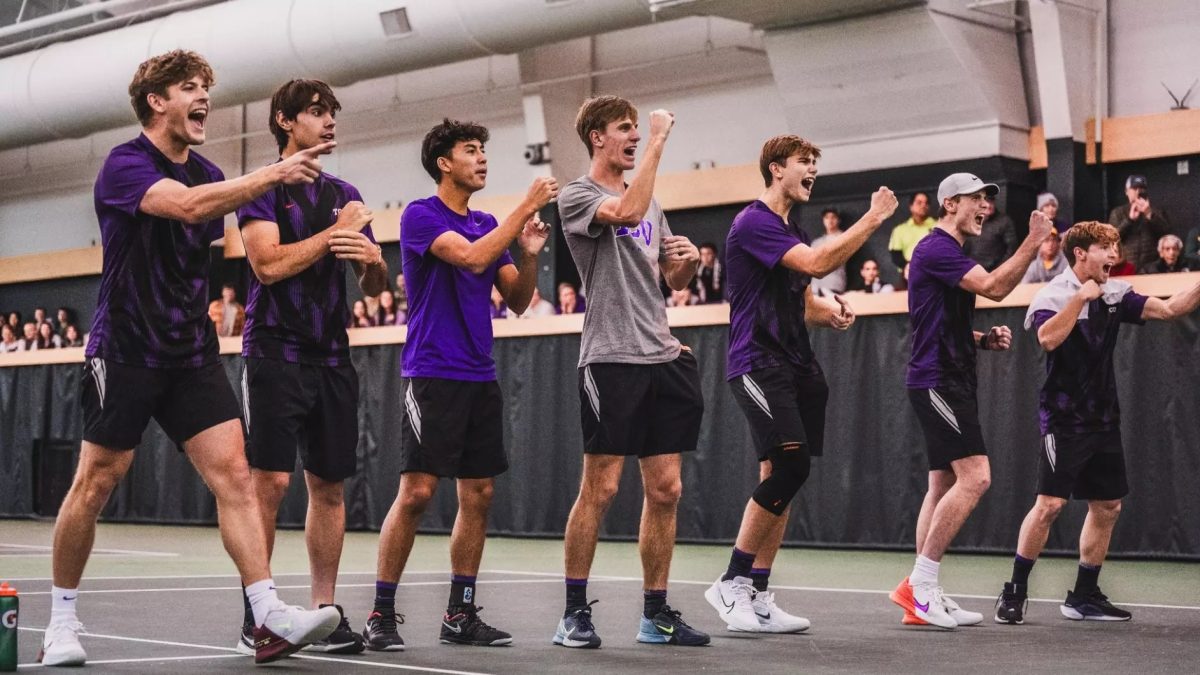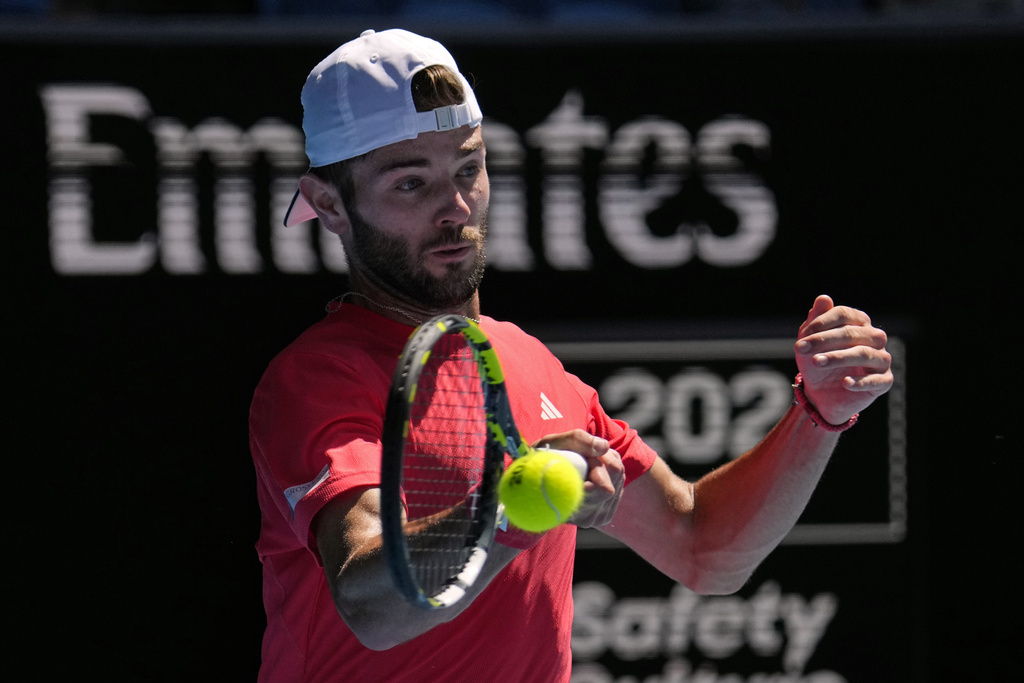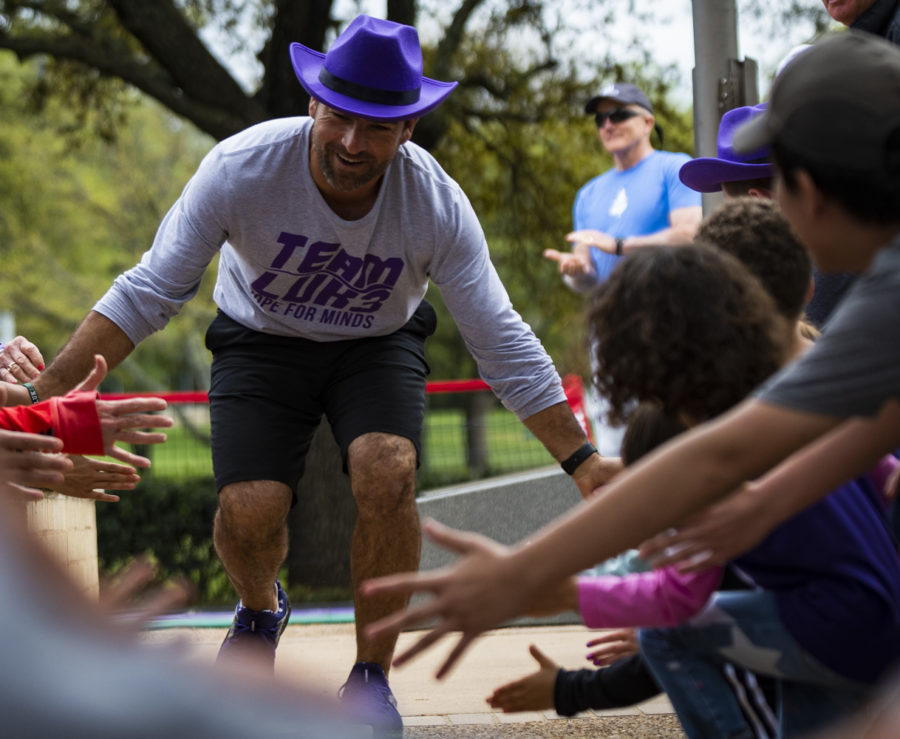Traditionally, tennis fans know what to expect when they attend a match.
Clap after a point, not during. No walking around while the ball is in motion. And, of course, no yelling at players. But that all changed this season, and it’s all because of TCU head coach David Roditi.
He is working to change that tradition in an effort to make the sport more enticing to fans.
“We want college tennis to be more relevant,” Roditi said. “We want tennis to be more relevant.”
Roditi said because college sports fans are accustomed to game environments like football and basketball, they would be more inclined to attend tennis matches if they are free to cheer.
Senior Horned Frog Facundo Lugones said he has noticed an increase in attendance at games across the conference.
“The whole point of college tennis is to attract fans, and I think if we can get them involved, and that’s the way to do it, it will help a lot,” he said. “If you want to go to a tennis match and be quiet, you can go to Wimbledon, but if you want to go to a crazy tennis match, you go to college.”
On April 18, a season-high 2,112 fans showed up to watch the Frogs defeat Texas. For the last two seasons, the Intercollegiate Tennis Association has named TCU the champion in attendance, but not one game in 2013 or 2014 had a single-game attendance of more than two thousand.
Who knows if the rise in attendance is due to the change in game atmosphere, but it certainly isn’t hurting.
Roditi emphasized that the purpose of the rule is not to encourage fans heckling players.
“The rule is not about heckling,” Roditi said. “It’s not about being disrespectful to the athletes. It’s about fan engagement and building a bigger fan base for college tennis.”
Roditi worked with five other coaches in the Big 12 Conference to do away with the no cheering rule. He said that at 10 out of 11 matches, there have been no issues.
“I don’t think anybody has lost a match because of somebody heckling,” the coach said. “I don’t think there’s been an upset or a team losing because of this rule.”
To adjust to the new rule, TCU tennis players and coaches yelled at each other in practice.
“In practice, coaches would yell out things in the middle of your toss just to kind of prepare us for anything that can happen in Big 12 play,” senior Will Stein said. “You focus on what you can control and let everything else play out, and I think we’ve done a pretty good job of that so far.”
While the change could make focus more difficult, TCU’s coach said the players can handle it.
“When you’re constantly asking the people to be quiet, and don’t move, don’t stand up, it kind of gives the perception that we can’t handle it as tennis players,” Roditi said. “I believe that tennis players, for the most part, are very strong mentally. We can handle it.”
In fact, Stein said he prefers the chanting.
“If the fans are involved, we feel better when we’re playing,” he said. “People think it might mess you up during the middle of your stroke, but once you’ve dealt with it for maybe a match or two, you’re completely used to it.”
This change has come with some backlash, which Roditi said he understands.
“On paper it sounds crazy,” he said. “It sounds very anti-tennis.”
According to Tom Perrotta’s article in The Wall Street Journal, the rule states “Spectators are to behave under the same principles/guidelines of other sports (no profanity, vulgarity, abusive comments, etc.).” In the article, University of Oklahoma’s coach John Roddick said the rule needs some refining to specify what spectators can and cannot say during a play.
Roditi has received several emails complaining that this rule is against what tennis is. He said he simply replies with his cell phone number so they can discuss it more.
So has anyone taken him up on that offer? Not yet.
Still, he says he loves the debate. Roditi said the conversation is giving college tennis great exposure.
Though many doubt what has become known as the “Roditi Rule,” college tennis has been the testing ground for changes in the sport before. The no-advantage scoring system, no-let rule as well as tiebreakers in doubles all started at the college level before infiltrating the professional game.
Stein said that college play already has more going on than a tournament like Wimbledon because there are six different games happening at once. With this rule, fans won’t have to worry about watching six courts to see when they can cheer.
But come the NCAA Championships in May, fans will have to mind their manners. The Roditi Rule only applies in the Big 12.
https://www.youtube.com/watch?v=hnTt8eqpQe0&feature=youtu.be




